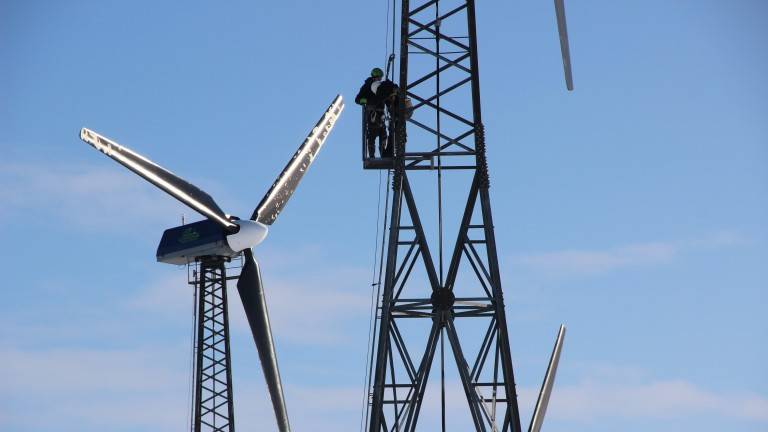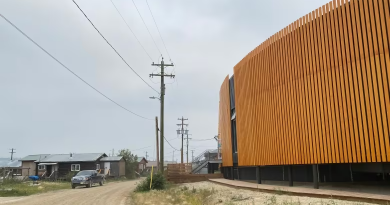Alaska’s Northwest Arctic Borough gets $2 million tribal energy grant

U.S. Energy Secretary Jennifer Granholm on Tuesday announced 13 tribal energy grants, about half of which are going to Alaska Native communities.
Granholm said the grants from the Office of Indian Energy will help meet President Biden’s climate goals. In total, she said, they will fund some seven megawatts of clean power generation and battery storage.
“That will power 1,300 tribal buildings and save these 13 communities a combined $1.8 million annually,” she said.
On a Zoom conference call with reporters, Granholm gave special recognition to Sen. Lisa Murkowski for supporting the Office of Indian Energy.
Adding solar energy and battery storage
Among the seven Alaska grants, the largest is $2 million to help Noatak and the Northwest Arctic Borough add solar energy and battery storage to the village’s diesel-powered grid. The smallest grant on the list goes to Akiachak: $123,000 to install energy efficient furnaces and lights in multi-use buildings.
Murkowski said even the small grants are important.
“Some may say, ‘Well, you’re just changing out lights,’” she said. “And you know what? If we can reduce the costs, if we can reduce the diesel that is used in these communities to power their communities by any increment, that puts us money ahead.”
The Office of Indian Energy was created in 2005. Murkowski says she helped expand grant eligibility in Alaska by allowing the funds to go to any census tract where most residents are Native, and by reducing the share local communities have to provide.
- The Metlakatla Indian Community – $1,031,110 to complete the electrical intertie between its Annette Island community and Ketchikan.
- Native Village of Kipnuk – $855,978 for a battery storage system to improve its wind-diesel grid.
- The Village of Chefornak – $854,964 for a battery storage system to improve its wind-diesel grid.
- The Native Village of Diomede – $222,848 for energy efficiency measures in the new village store.
- The Village of Aniak – $167,948 to install energy retrofits on four multi-use buildings and the Village’s Community Center.
Granholm also thanked Murkowski for helping negotiate an infrastructure deal, which is likely to have more money for Indian energy.
Murkowski, whose seat will be on next year’s ballot, was the only senator who participated in Granholm’s Zoom press conference.
Alaska Congressman Don Young issued a press release commending the secretary for the grants.
Related stories from around the North:
Canada: Community in northern Quebec to make the jump from diesel to hydroelectricity, CBC News
Finland: The world could transition entirely to cheap, safe renewable energy before 2050: Finnish study, Yle News
Norway: Are Norway’s energy policies caught between ‘black gold’ & green ambitions?, Blog by Marc Lanteigne
Russia: Italian firm to build giant wind farm in northwestern Russia, The Independent Barents Observer
Sweden: Sweden’s solar industry sees bright future despite shrinking subsidies, Radio Sweden
United States: Despite winter darkness, solar power might work better in rural Alaska than you’d expect, Alaska Dispatch New



